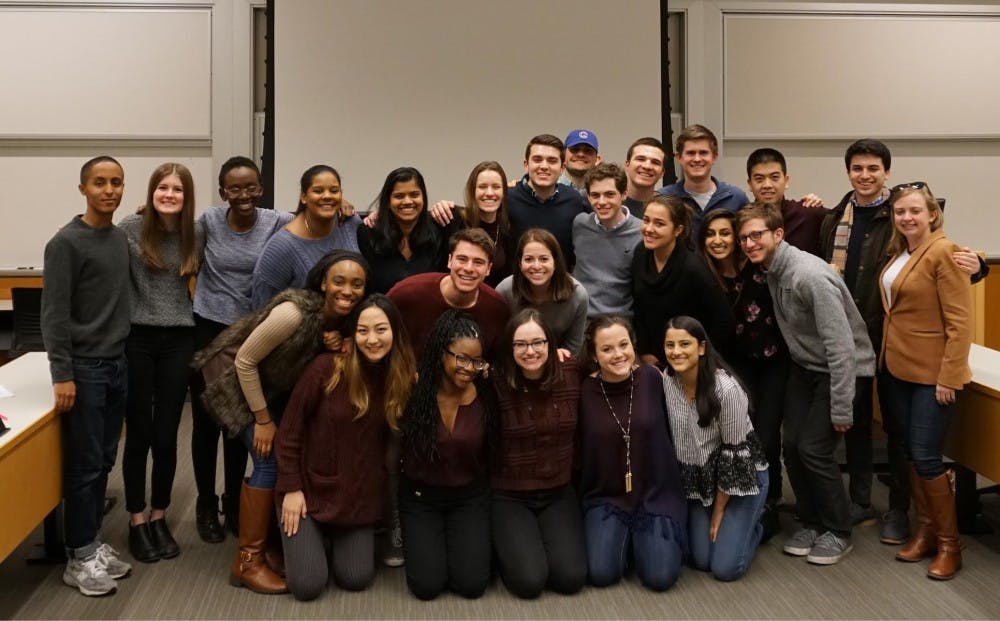
The Nominations and Elections Committee was responsible for educating the student body about the recent special election and ensuring that all campaign rules were followed. (Photo from Stephen Imburgia)
The Undergraduate Assembly recently held a special election to fill a vacant Wharton representative seat on Jan. 30. But despite the 1,982 students who were eligible to vote, only 108 total students cast their ballots in the election.
Wharton sophomore John Casey was elected late last month with 61 votes, ahead of runner-up Wharton sophomore Chris Cherian, who received 47 votes. The seat was left vacant after Wharton senior Nile Nwogu resigned at the end of last semester.
While UA leaders said improving overall voter turnout is one of their key goals this semester, they say student government typically sees lower voter turnout in special elections.
Nominations and Elections Chair and College senior Stephen Imburgia said that, although turnout was lower than usual for this election, special elections have lower turnout than the general elections in the spring and the freshmen elections in the fall.
Imburgia, who was a former reporter for The Daily Pennsylvanian, said one key reason for the low turnout was that only two students formally declared their candidacies. He added that a greater number of candidates in any given election generally results in more votes cast, since candidates tend to elicit publicity for the election through their respective campaigns.
The NEC’s responsibilities for the special election included educating the student body about the election and ensuring that all campaign rules are followed, Imburgia said. He said the NEC publicized the special election by advertising on Facebook and reaching out to Wharton clubs.
To maximize student voters in future elections, Imburgia hopes that the other five branches of student government, such as the Student Activities Council and Student Committee on Undergraduate Education, will assist the NEC with publicity. Imburgia also aims to expand social media promotion and set up voting booths across campus — currently, students cast their ballots on their personal computers.
UA speaker and College junior Brian Goldstein said the timing of the election at the beginning of the semester could be a factor for the low turnout, as students were likely still getting accustomed to new classes.
But he added that advertising for the election could have been more widespread, as the UA did not promote the election in any official capacity. Goldstein said this was to avoid a conflict of interest, as Casey was an associate UA member, but the group may advertise online in the future.
Goldstein also hopes that “getting more people engaged with student government across campus,” which is one of the UA’s central goals this semester, will help increase turnout in future elections.
Casey told The Daily Pennsylvanian earlier this month that reforming club recruitment, increasing mental health services, and looking into the impact of Huntsman Hall's new reduced hours are issues he hopes to tackle throughout his tenure until the UA board is up for reelection at the end of the spring semester.
Imburgia said despite the low turnout, the NEC felt that the other aspects of the election went smoothly.
“Turnout was lower than we had hoped, but it was still very much a fair election,” Imburgia said.
The Daily Pennsylvanian is an independent, student-run newspaper. Please consider making a donation to support the coverage that shapes the University. Your generosity ensures a future of strong journalism at Penn.
Donate






